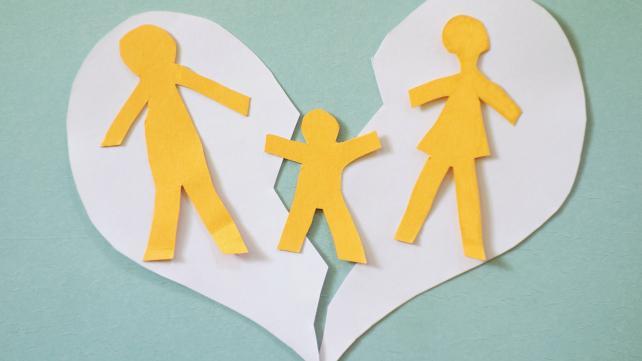
Family is very important for the development of children. Stability and security provide an anchor for human growth and development. A stable environment provides nurturing caregivers, unconditional love, consistent discipline, and a dependable and safe living space that shapes a child’s perspective of himself and the world around him.
A divorce is a life event with a high level of stress for the entire family that can have a significant negative impact on children. Children are dependent on their parents and disadvantaged during divorce because it is out of their control and they often lack the information and skills to overcome the challenges that divorce carries.
The reactions of children during the divorce can vary relative to the gender and age of the child. The biggest obstacle that makes it difficult for a child to successfully deal with changes in the family is conflicting relationships between parents. Children differ from one another in their reactions to divorce, but there are some reactions that are common. These include depressive symptoms, anxiety, anger, and lower self-esteem, which then impact aspects of their life psychologically, behaviorally, academically, and socially.
Psychological Impact
Divorce creates turmoil for the entire family, but for kids, the situation can be quite scary, confusing, and frustrating. Younger children struggle to understand the reason for the divorce and may worry that the divorce is their fault. Teens may be quite angry about divorce and the changes it creates. They may blame one parent for the dissolution of the marriage or they may resent one or both parents for the upheaval in the family. These feelings can lead to depression, anxiety, and stress.
Behavioral Impact
Children from divorced families may experience increased externalizing problems, such as conduct disorders, delinquency, and impulsive behavior than kids from two-parent families. In addition to increased behavior problems, children may also experience more conflict with peers after a divorce.
Academic Impact
Children going through a divorce may earn lower grades and even face a higher dropout compared to their peers. These effects may be seen as early as age 6 but may be more noticeable as kids reach the ages of 13 to 18 years old. There are several possible reasons for this link, including that children may feel neglected, depressed, or distracted by the increased conflict between their parents. With time, less interest in academics at the high school level may trickle over to less interest in furthering their education overall.
Social Impact
Children might become quite shy or anxious. Children may seem uninterested or even fearful of social situations, like hanging out with friends or attending school events. Low self-image can be associated with both divorce and social withdrawal.
Helping Kids Cope
The divorce of a parent does not necessarily have to be so negative for children, especially if parents endeavor to act in a way to make this process as painless as possible for children. Age-appropriate explanation and counseling are important so children realize that they are not the cause of, and cannot be the cure for, the divorce. Here are some things to be mindful of:
- Be kind to yourself.
- Assure your child that the split isn’t in response to their behavior.
- Encourage your child to talk to you.
- Try to eliminate conflict between yourself and your ex-spouse if possible.
- Reach out for help if needed.
Children are resilient and the effects of separation tend to be more challenging in the first 1 to 3 years of the split. Families can take on many forms and family stability is not inherent in the number of family members or its various structures (i.e. traditional, single parent, blended family, foster family, etc.). Instead, it’s about providing a consistent, safe, and loving environment for children, one in which they can lean on family members under all circumstances. Strong family bonds, unconditional support, and predictable safety nets are the keys to a stable upbringing.
Miriam Mohamed is a mother to seven children and a granny to two cats! She loves trying new things and learning cool facts. She has taught in an Islamic school setting, has experience assisting children with special needs, and enjoys volunteering and being a part of the community. Miriam lives in Chicago with her beautiful flowering cherry tree and big family.



Add new comment